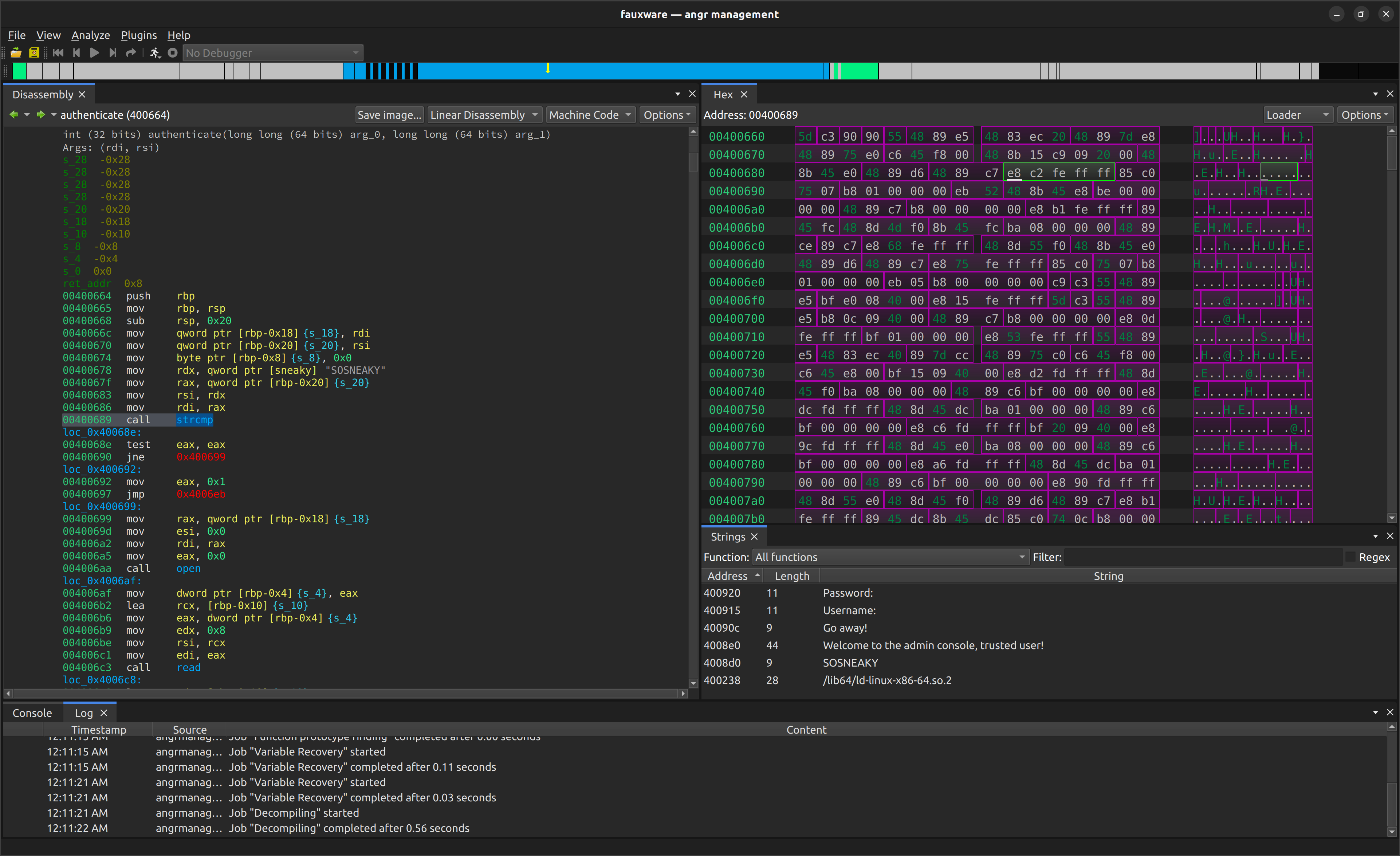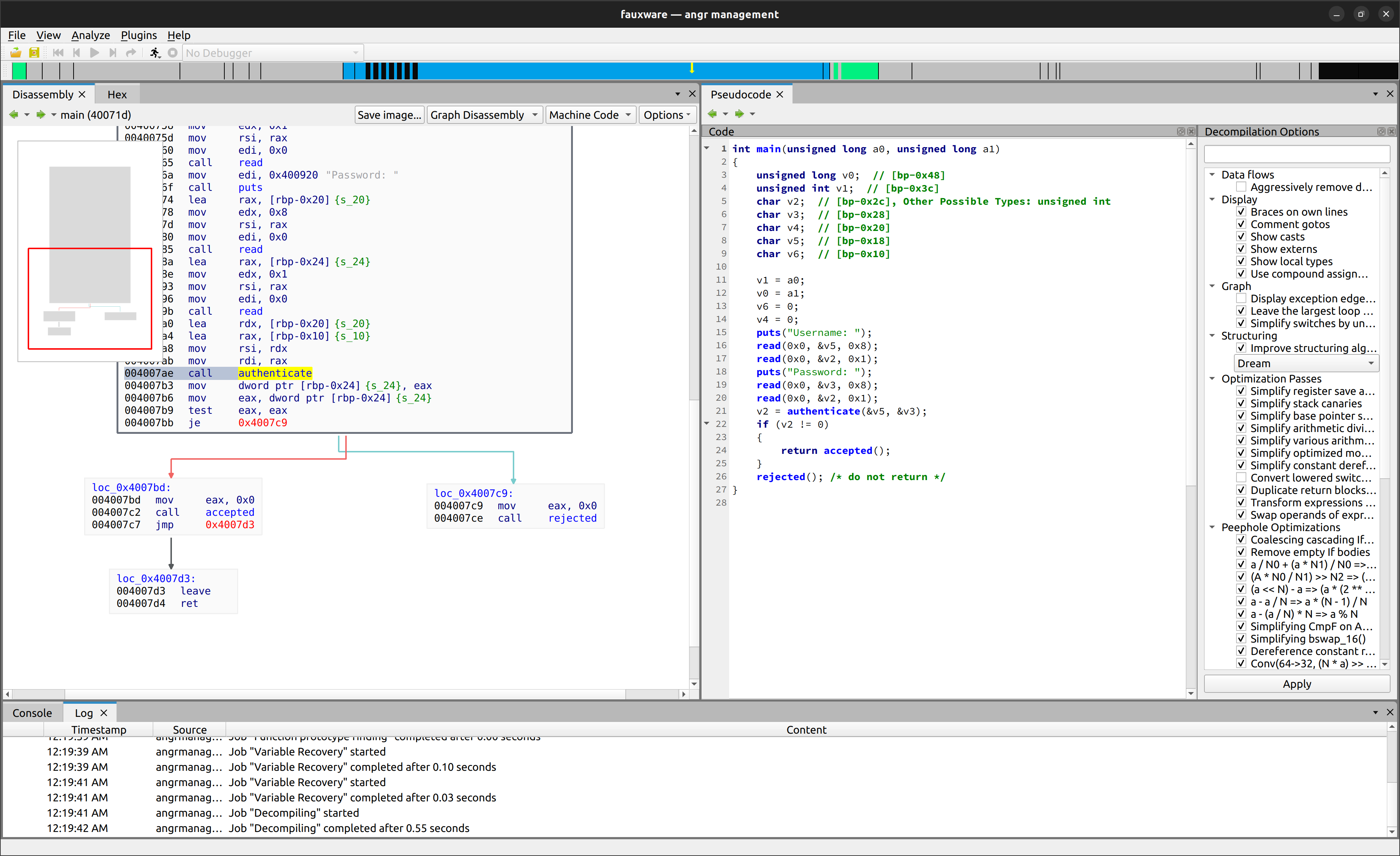This is the GUI for angr. Launch it and analyze some binaries!
Some screenshots:
The easiest way to run angr-management is by grabbing a bundled release from the releases page: https://github.com/angr/angr-management/releases
Builds can be extracted and then run from anywhere. Note that builds are currently unsigned.
To install angr-management, use pip:
pip install angr-management
angr-management can then be run with the command angr-management.
See angr-dev for how to set up a development environment for the angr suite.
angr-management is included by default and checked out to angr-management directory.
If you encounter dependency issues, re-running setup.sh or setup.bat from angr-dev will ensure all dependencies are installed.
angr-management can then be run with angr-management or python start.py.
FLIRT signatures: For now, please manually clone FLIRT signatures by running git clone --recurse-submodules https://github.com/angr/angr-management, which will clone the flirt_signatures submodule.
-
Load a new binary:
Ctrl+O -
Load a new Docker Image
Ctrl+Shift+O -
Load a Trace File
Ctrl+Shift+T -
Save angr database... :
Ctrl+S -
Save angr database as... :
Ctrl+Shift+S -
Decompile:
F5 -
Documentation:
Alt+H -
Next Tab:
Ctrl+Tab -
Previous Tab:
Ctrl+Shift+Tab
Configuration files locations vary by platform.
- Windows:
~\AppData\Local\angr-management\config.toml - macOS:
~/Library/Preferences/angr-management/config.toml - Linux:
~/.config/angr-management/config.toml
Plugins may be installed by placing a subdirectory under plugins. The directory must contain an __init__.py like that in TestPlugin:
from .test_plugin import TestPlugin
PLUGIN_CLS_NAME = TestPlugin.__name__
This also allows you to import a plugin class from another package entirely. The plugin itself should inherit from BasePlugin. Callbacks and events are a work in progress, so the API is subject to change. See TestPlugin for an example of a multithreaded plugin sample.
Take a look at https://docs.angr.io/extending-angr/angr_management!
To build a portable executable using PyInstaller, install angr management into a python envrionment with the pyinstaller extra.
Do not install anything in editable mode (pip's -e), as PyInstaller currently fails to bundle modules installed with editable mode.
Then, run pyinstaller angr-management.spec.
If things go wrong, the best bet is to reference the nightly build pipeline and the PyInstaller docs.
The CI environment that produces nightly builds is at .github/workflows/nightly-build.yml and .github/workflows/nightly-build.sh.


